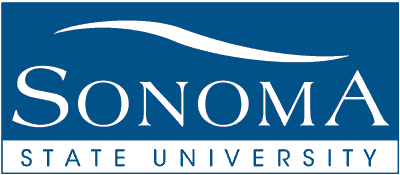Middle Leadership Academy
2022-23 Cohort
Campus teams participating in the 2022-23
Middle Leadership Academy.
Team project summaries are listed below:
Team Lead: Jeannie Econome, Associate Director, First Year Experience, Sacramento State
The First Year Seminar and Students in Transition team is a cross campus team composed of representatives from five campuses: Sacramento, Northridge, San Diego State, Cal Poly Pomona and San Francisco State). The project goal is to create a collaborative community of practice among all 23 CSU campuses to share practices, materials, and approaches around transitional academic programming for first-year and transfer students.. These cross-campus collaborations will help increase access to interventions that maximize student success and reduce equity gaps.
Team Lead: Lavariega Monforti, Vice Provost
The academic literature shows that creating an integrated first year experience program that fosters a successful undergraduate student experience through strategic programming that focuses on positive academic transitions and the development of learning communities can move the retention needle significantly. The goal of this project is to develop a more integrated and intentional new student onboarding experience, from recruitment and admission through enrollment in year two for first-time, full time and transfer students that is both culturally relevant and academically grounding. Our targets are to increase retention from 75% to 78% in year 1 (Fall 2024), 83% in year 2 (Fall 2025), 84% in Year 3 (Fall 2026).
Team Lead: Cirilo Cortez, Associate Vice President, Engagement & Retention
Developing an Inclusive Student-Centered Onboarding Experience: The Chico State project focuses on hiring and training student mentors to guide and support first-year students. These Student Navigators provide timely information, mentoring, reassurance, and help expand first-year students’ social and academic capital from their intention to enroll through the end of their first semester. The project also coordinates the delivery of timely information through targeted engagement to support student connection to services and the campus community. The Chico State project focuses on hiring and training student mentors to guide and support first-year students. These Student Navigators provide timely information, mentoring, reassurance, and help expand first-year students’ social and academic capital from their intention to enroll through the end of their first semester. The project also coordinates the delivery of timely information through targeted engagement to support student connection to services and the campus community.
El proyecto de Chico State se enfoca en contratar y capacitar a mentores estudiantiles para guiar y apoyar a los estudiantes de primer año. Estos Navegadores de estudiantes, Student Navigators, brindan información oportuna, orientación, confianza y ayudan a expandir el capital social y académico de los estudiantes de primer año desde su intención de inscribirse hasta el final de su primer semestre. El proyecto también coordina la entrega de información oportuna justo en el momento cuando el estudiante la necesite para promover su conexión a los servicios y a la comunidad del campus.
Team Lead: Torrell Foree, Assistant Director
Black Student Success: Our project seeks to support Black/African American students through collaboration with the College of Humanities and Social Sciences (Academic Affairs) and the Division of Student Affairs to provide a transformative onboarding experience that enables students to have a sense of belonging and engage in culturally-relevant support mechanisms that sets up them up for success and integration in the college.
Team Lead: Ennett Morton, Director, Faculty Affairs
We want to empower faculty to provide culturally sensitive and relevant referrals, resources, and intervention to historically underrepresented minorities, Pell-eligible, and first-generation students which data shows earn DFW grades at a disproportionate rate compared to other students, by providing faculty data and relevant assessments to make informed decisions about their instructional practices and course structures.
Team Lead: Kristjan Bondesson, Lecturer, Communication Across the Disciplines
This CSU, Monterey Bay team is addressing the experiences of underrepresented minority students (URM) with non-traditional grading methods in first-year writing courses. We are asking the research question, “What are the impacts of ungrading and other non-traditional grading practices in first-year writing?” in order to improve students’ self-concepts as writers and success at the university. Partly, this involves understanding students’ own definition of “student success” and incorporating that definition into our assessment practices. The CSU, Monterey Bay team plans to 1) hold focus groups with students, 2) facilitate discussion groups with students and faculty, and 3) expand the reach by possibly creating tutor resources for students’ self-evaluations of their writing and webinars or workshops in ungrading for faculty preparing to teach.
Team Lead: Yi Ding, Online Instruction Coordinator
A-PLUS (Affordable Pedagogies for Learning for Underserved Students) Team Project: The CSUN Department of Chicano/a Studies is the largest and oldest such department in the country with a proud history of student activism and faculty dedication to social justice. AL$ shares the department’s world views of social justice, fairness, and equality. In order to improve the affordability of course materials in high-impact courses like CHS 100, our goals are to reduce financial and academic barriers for CHS students and increase CHS student engagement and classroom participation by creating a low/zero-cost course materials major pathway. In line with the departments’ curriculum and pedagogical praxis, we will work to reject profit-seeking systems which exploit CHS students and augment CHS faculty academic freedom without the influence of external interests.
Team Lead: Hayley Dillon, Director, Parents & Families Program
Sacramento State Student-Parent Peer Ambassador Pilot Project: Sacramento State developed and implemented the Student-Parent Peer Ambassadors (SPPA) Pilot Project. Our project secured 3 semesters-worth of funding to develop, hire and train five SPPAs through the Parents & Families Program, in collaboration with the College of Continuing Education, the Transfer Resource Center, faculty from the RPTA department, the Women’s Resource Center, and two student-parents. The collaborative, cross-divisional project provides an integral step is to improve student-parent integration and sense of belonging while also helping student-parents navigate the higher education landscape. Through MLA, we developed the SPPA Pilot Program to be a campus-wide support network of 5 peer ambassadors who help student-parents and adult learners navigate campus services and foster a sense of belonging and community for this population. We created a triage and referral system to link pregnant and parenting students to campus and community services, and help give voice to this population to advocate for their needs across campus in and out of the classroom. Student-parents are a large group at Sacramento State; specifically 1 in 3 Hornets has a child. Student-parents are over-represented in many minority groups: 87.5% are women, 77% are low income, 38% are first-generation, and 66% are from communities of color (Sac State OIREP, 2022). Despite a higher GPA than the general population (3.07 compared to 2.91), student-parents take between 9-15 years to earn a bachelor’s degree (Attewell & Lavin, 2007; IWPR, 2019). Student-parents and adult learners must navigate institutional structures, policies, and programs that are largely designed with more “traditional” student populations in mind, which can negatively impact persistence and completion rates (Bergman, 2020). The SPPA Pilot Program helps student-parents by targeting resources and services to help them stay in school and graduate.
Team Lead: Deanna Fassett, Assistant Vice Provost for Faculty Development
Our project supports faculty in closing equity gaps and strengthening retention rates by transforming the culture of student success through generative faculty learning communities (GFLC) that are asset-based, culturally sustaining and result in lasting, sustainable course-level changes.
Team Lead: Theresa Suarez, Associate Professor
Official race/ethnicity reporting structures may have historically contributed to an equity gap in resources dedicated to supporting NHPI students. The CSU system aligns race/ethnicity official enrollment reports with federal guidelines. Students who identify as Native Hawaiian/ Pacific Islander (NHPI) and with another race/ethnicity are categorized in either the Hispanic/Latino or Two or More Races categories in official Census reporting. As of Fall 2021 at CSUSM, 41 students or 0.3% of the total student population identify as NHPI. Yet further analysis reveals 197 students, or 1.4% of all students, identify as Native Hawaiian or Other Pacific Islander (i.e., Chamorro, Fijian, Samoan) even if it is not their only reported race/ ethnicity.
Team Lead: Brandon Price, Interim Associate Vice President for Student Success
The Stan State team will develop a Support Notification plan (1) to provide early intervention and targeted outreach to students identified as at risk. Also, to (2) reduce equity gaps and increase retention at the campus level.
Team Lead: Jenn Lillig, Interim Associate Dean of Academic Programs
Prioritizing an Equity Culture at SSU: Strategies to Support Ongoing and Valued Growth: While SSU has decreased equity gaps as part of the CSU’s Graduation Initiative 2025 and corresponding Equity Priorities from the CSU Chancellor’s Office, the gaps persist. Our Equity Culture Collective (ECC) is working to increase student success and eliminate these gaps by shifting our campus culture to one that supports ongoing professional growth that is demonstrably valued by the campus community. This work includes 1) repurposing existing meeting times to include integrated professional growth opportunities related to student equity and success, 2) revising campus policies for faculty retention and tenure, program review, and syllabi to show that this work is valued, and 3) branding for the ECC to create an identifiable campus-wide community focused on the equitable success of all students.












